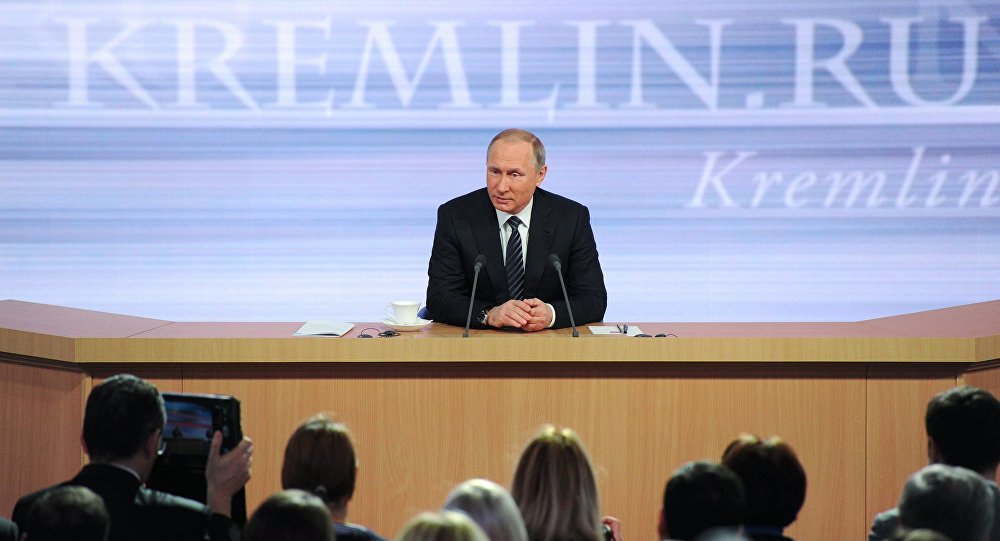Perhaps it was the difficult economic conditions at home, or because of the unpopular decisions that risks making President Putin the man of the elite rather than the man of the people, but what was clear to see in his annual press conference on 17 December was the Putin was more interested in the Middle East than at home. He was more animated, talked for longer, and was visibly more engaged in discussions on the Middle East and Russian foreign policy there than on any other issue. In fact, it seems Putin is putting all his energy into making his legacy based on success in the Middle East.
One highlight in his comment was that Russia and the US are now closer on Syria than ever before. He praised Secretary Kerry for his recent efforts to coordinate policy on Syria and attempt to achieve peace and hinted at the possibility of a Russia-West alliance that would bring together the two separate coalitions operating in Syria. This means Putin is recognising US efforts to work with him and that he is willing to be pragmatic rather than offer stubborn ideological resistance. This may stem from the fact that he has a large military presence now in Syria, something the West did not expect six months ago, but it means that he values the merits of a deal. The US-Iran nuclear accord may have encouraged Putin to adopt a hard-line in order to gain more in negotiations but it may send a signal to Russia’s allies that Putin cannot be relied upon forever if the US makes him a good offer.
His sharpest comments were reserved for Turkey, and with the presence of sophisticated air defence systems in Syria, he dared them to try to be aggressive again and shoot down a Russian plane or violate Syrian air space. He even suggested that Turkey shot down the Russian jet because it wanted to please the US and then wanted to move into Iraq with an armoured force with US approval. It seemed he wanted to make clear that aggression towards Russia must be punished and that he will make an example out of Turkey for daring to confront him in Syria. The rise of covert Islamism in Turkey was mentioned, as was the allegation that Daesh was created to fight the Syrian regime and to cover up illegal oil sales in Iraq and Syria.
Over 1,400 journalists were in attendance for the 3 hour press conference but because Putin has been speaking to the media so often the past few months (due to Syria mainly) his comments had been expected rather being surprising. In fact, his general foreign policy has followed a consistent line since his famous speech in the 2007 Munich Security Conference where he accused the US of overstepping boundaries and noted that Russia was going to be more assertive abroad and have a more prominent role in the global stage. Now it seems likely that Putin, having made such a large investment in Syria and partnered with Iran and Iraq on Middle East security, is unlikely to walk away from the area at all, and that he intends to make Russian presence a long-term counter to that of the US. This is because he intends to have his legacy be based on foreign policy success and perhaps also that he should not fail in Syria or allow Turkey to challenge him openly without repercussions. The hard man of Russia wants to be the hard of man of the Middle East.











